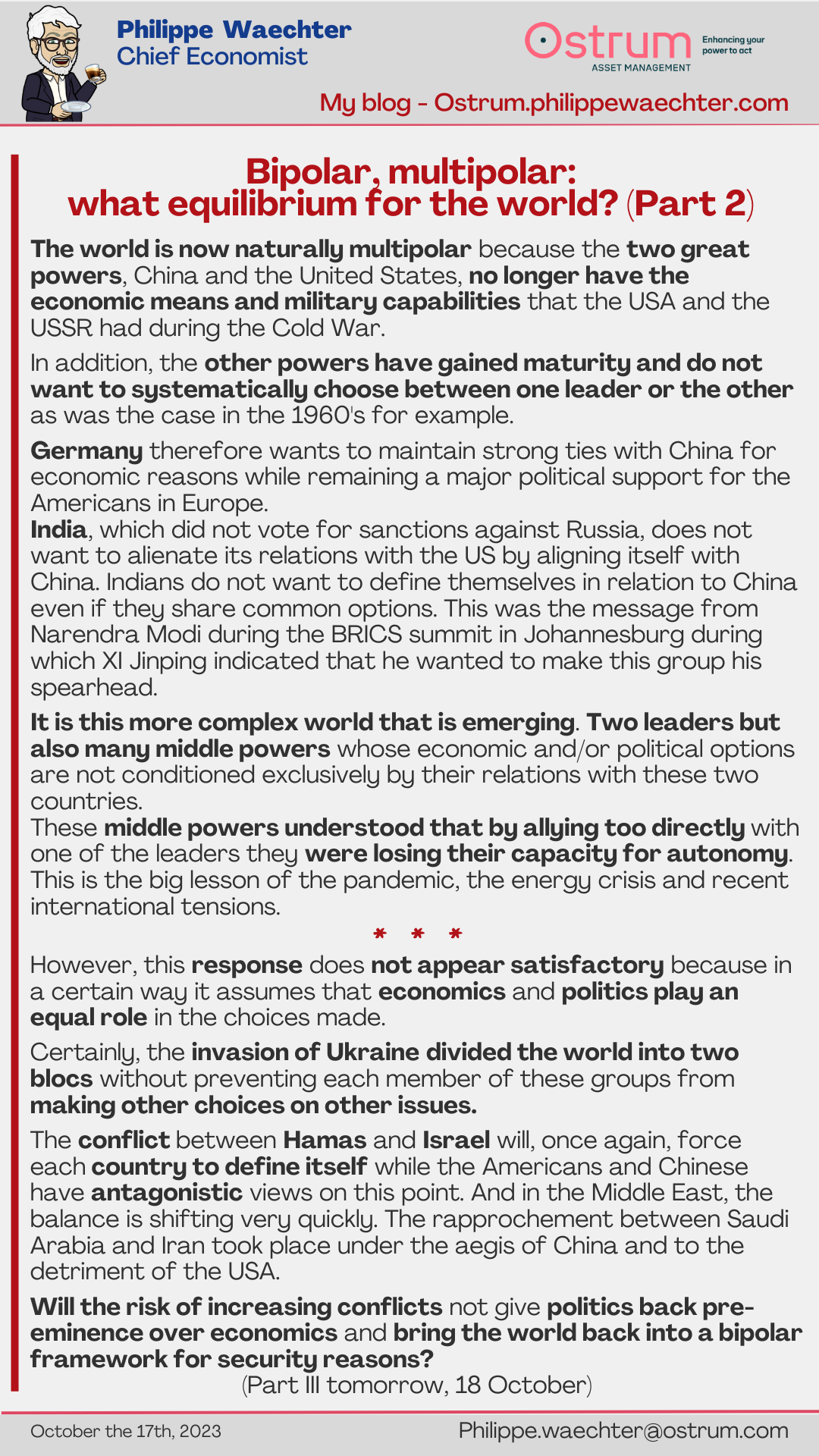The world is now naturally multipolar because the two great powers, China and the United States, no longer have the economic means and military capabilities that the USA and the USSR had during the Cold War.
In addition, the other powers have gained maturity and do not want to systematically choose between one leader or the other as was the case in the 1960’s for example.
Germany therefore wants to maintain strong ties with China for economic reasons while remaining a major political support for the Americans in Europe.
India, which did not vote for sanctions against Russia, does not want to alienate its relations with the US by aligning itself with China. Indians do not want to define themselves in relation to China even if they share common options. This was the message from Narendra Modi during the BRICS summit in Johannesburg during which XI Jinping indicated that he wanted to make this group his spearhead.
It is this more complex world that is emerging. Two leaders but also many middle powers whose economic and/or political options are not conditioned exclusively by their relations with these two countries.
These middle powers understood that by allying too directly with one of the leaders they were losing their capacity for autonomy. This is the big lesson of the pandemic, the energy crisis and recent international tensions.
However, this response does not appear satisfactory because in a certain way it assumes that economics and politics play an equal role in the choices made.
Certainly, the invasion of Ukraine divided the world into two blocs without preventing each member of these groups from making other choices on other issues.
The conflict between Hamas and Israel will, once again, force each country to define itself while the Americans and Chinese have antagonistic views on this point. And in the Middle East, the balance is shifting very quickly. The rapprochement between Saudi Arabia and Iran took place under the aegis of China and to the detriment of the USA.
Will the risk of increasing conflicts not give politics back pre-eminence over economics and bring the world back into a bipolar framework for security reasons?
(Part III tomorrow, 18 October)




